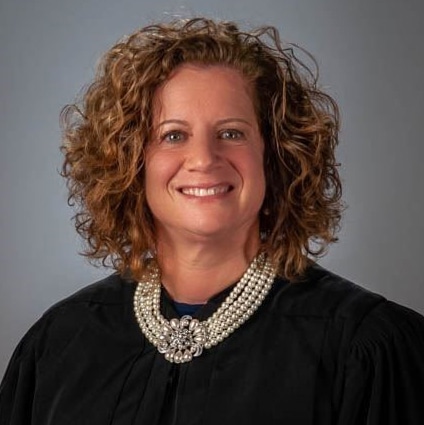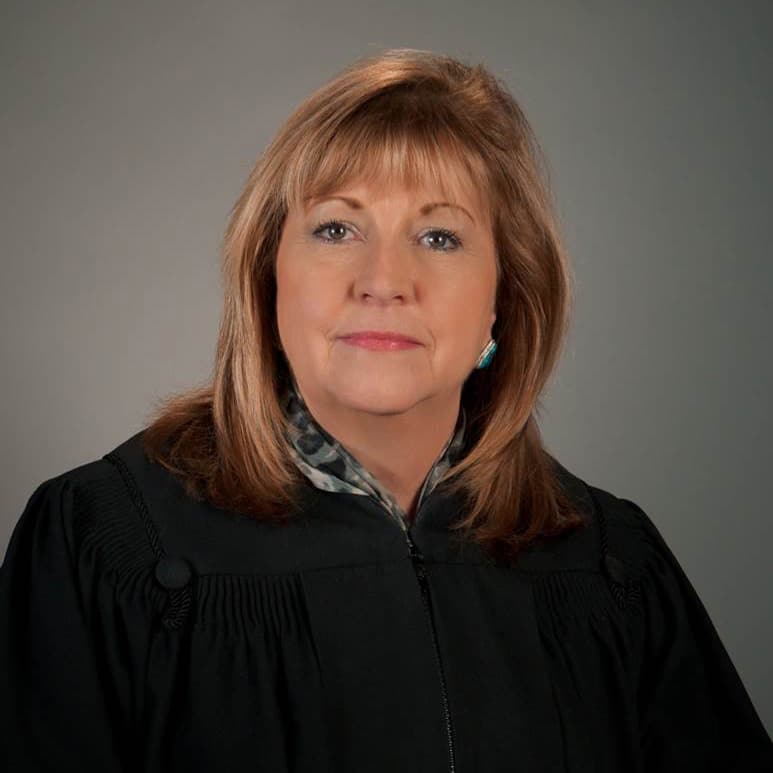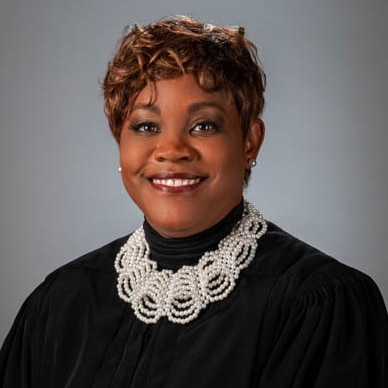
“My goal is to be out of business. That will require addressing and changing the fundamental aspects of language development and education. Without language development, you can’t succeed in school and you can’t succeed in formulating healthy relationships with those around you. By ensuring all children experience good language development leading to healthy reading skills, we can help them achieve their goals in school and life.”
Michelle Gozansky Harrison, Chief Judge, Douglas County Juvenile Court
“When children don’t have words, their behavior becomes their language. All of us who care about children need to understand that. We can’t sanction children who lack language for their behavior and put them out of preschool or grade school, because they need education the most. They need the supports, services, and learning opportunities. When we do sanction them, we’re pushing them into the school-to-prison pipeline. But, when we apply science to practice as a guide to support and nurture children beginning in their early years, the greater their success throughout their lives.”
Judge Peggy Walker, Douglas County Juvenile Court (retired)


“Research shows that children are most successful socially, emotionally, and academically when they are provided constant, meaningful exchanges in speech and language. Not only are speech and language vital to healthy brain development; they are critical in shaping and molding a child’s self-confidence and enhancing cognition and analytical abilities. It is up to all of us adults to ensure that every child has the best possible start at life.”
Talia Nurse, Associate Judge, Douglas County Juvenile Court

The mission of the Juvenile Court of Douglas County is to serve children and families through prevention and early intervention services in delinquency and dependency cases, seeking to divert children and families from the court process. When court intervention is necessary, the court works to ensure cases are heard promptly so that children and families are connected to services as soon as possible.
The judges and staff in Douglas County, and a growing number of juvenile courts in Georgia, are going above and beyond to respond to what neuroscience tells us about child development and trauma, the importance of nurturing children’s resilience. The legal field has been deepening its understanding of the science of trauma and the impact it has on brain development, physical growth, and vocabulary development. A growing number of juvenile court judges are now applying that science to their practice, which strengthens the alignment between the courts and the education field.
When children experience abuse and neglect or don’t receive consistent love and support from the adults in their lives, a nurturing and supportive environment at school can be a protective factor that helps them succeed. But, when children are sanctioned because of their behavior and they miss school and fall even farther behind, their early challenges compound and can lead to a lifetime of problems.
A wide array of supports and services are available to young children in the child welfare system. The Douglas County Juvenile Court staff includes a childcare coordinator who serves as a liaison between the court and many of those supports, including Babies Can’t Wait and Learn and Earn to Achieve Potential (LEAP), to ensure families are able to access them.
To provide a safe and nurturing space for children when their families are in court, Douglas County established a Reading Room filled with children’s books and activities, often bringing in a therapy dog for children to read to and play with while their families are in court.
Georgia leaders can support children who experience abuse and neglect by promoting Language Nutrition to ensure children have the words to express themselves; offering access to the food, shelter, and health services they need; and providing positive learning climates where children can develop nurturing relationships with teachers and peers—rather than sanctioning and punishing them, which results in poor outcomes over the course of their lives.
To learn more about the Juvenile Court of Douglas County, visit their website.
Walker reveals how we can provide a safe and appropriate future—not just for our children—but for all of us.
This video, narrated by Walker, explains how law and policy should be aligned with the science of brain development in order to build the capabilities of caregivers and strengthen communities.
